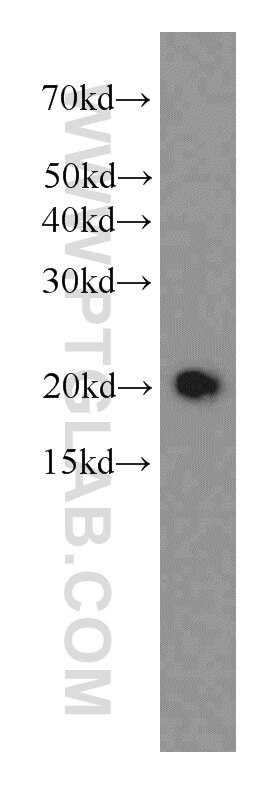Validation Data Gallery
Tested Applications
Recommended dilution
| Application | Dilution |
|---|---|
| It is recommended that this reagent should be titrated in each testing system to obtain optimal results. | |
Product Information
66152-1-PBS targets STMN3 in WB, Indirect ELISA applications and shows reactivity with human samples.
| Tested Reactivity | human |
| Host / Isotype | Mouse / IgG2b |
| Class | Monoclonal |
| Type | Antibody |
| Immunogen | STMN3 fusion protein Ag18844 相同性解析による交差性が予測される生物種 |
| Full Name | stathmin-like 3 |
| Calculated molecular weight | 21 kDa |
| Observed molecular weight | 21 kDa |
| GenBank accession number | BC009381 |
| Gene Symbol | STMN3 |
| Gene ID (NCBI) | 50861 |
| RRID | AB_2881548 |
| Conjugate | Unconjugated |
| Form | Liquid |
| Purification Method | Protein A purification |
| UNIPROT ID | Q9NZ72 |
| Storage Buffer | PBS Only |
| Storage Conditions | Store at -80°C. |
Background Information
Stathmin family phosphoproteins participate in the control of microtubule dynamics and have been proposed to be involved in the control of neuronal differentiation. Neuron specific Stathmin-3 (STMN3) is a novel STAT3 (signal transducer and activator of transcription 3) interacting protein. STAT3 is a key contributor to cancer cell migration and invasion. STMN3 exhibits microtubule-destabilizing activity, which is antagonized by STAT3. SCG10 is a widely studied and recognized neuronal differentiation marker, STMN3 is a SCG10-like protein (SCLIP) and is present from the earliest stages of hippocampal neuron differentiation in culture at vesicle-like structures following dynamic microtubules. RNAi mediated inhibition of this gene resulted in increased axonal branching.
